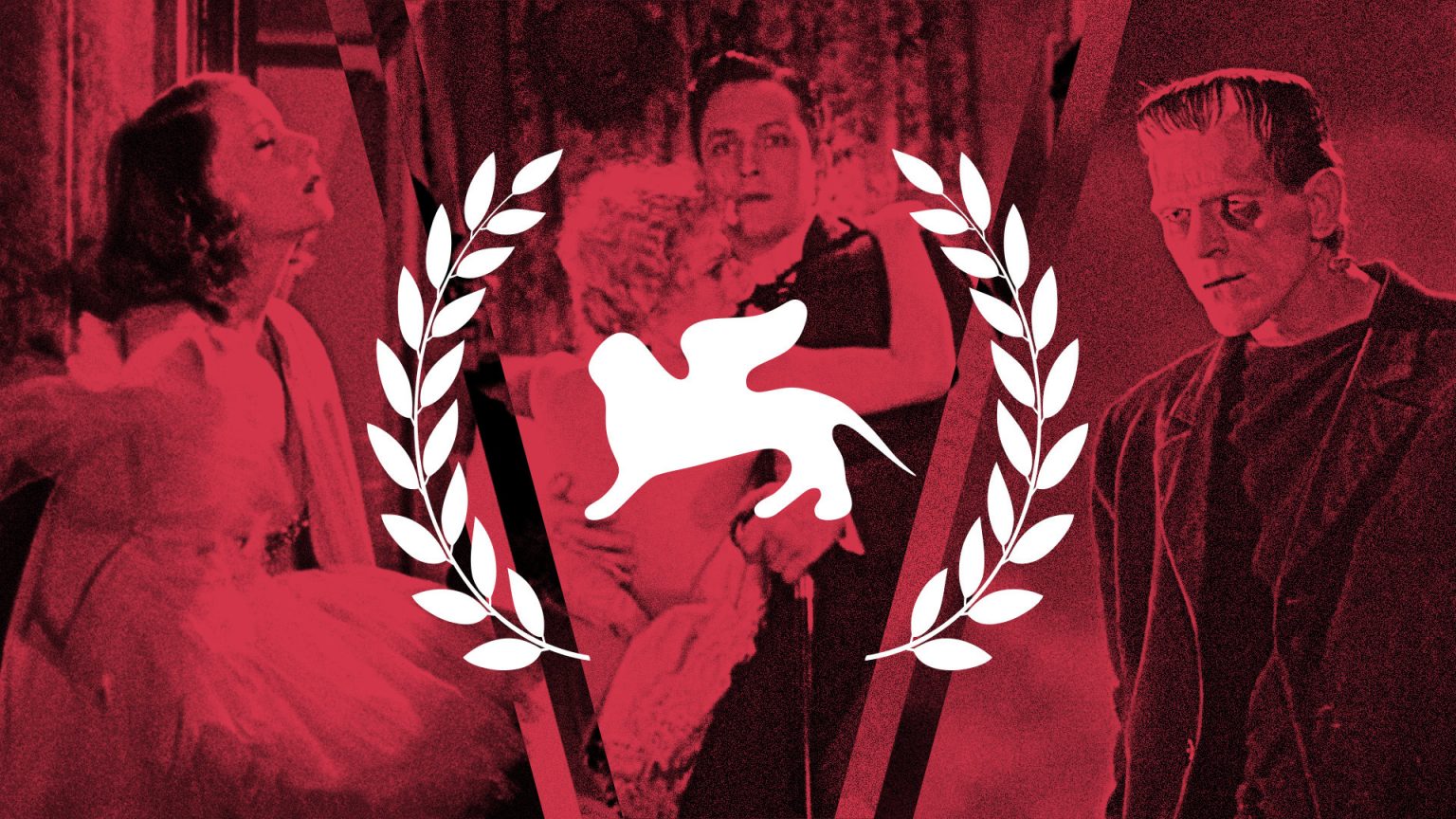Generally cited as the first of its kind, the Venice Film Festival was actually a few months after a similar but largely forgotten festival in Prague. Yet, as a part of the Venice Biennale, a world-renowned arts festival held in Venice since 1895, the Venice Film Festival quickly took on a much higher profile. To this day, Venice is still considered among the most notable film festivals in the world and has popularly been referred to as the “World’s Film Festival.” So, in the immortal words of Maxell Scott in The Man Who Shot Liberty Valance, “When the legend becomes fact, print the legend.”
Count Giuseppe Volpi di Misurata, the sculptor Antonio Maraini, and Luciano De Feo organized the first edition of the Venice Film Festival. Their iteration was non-competitive, though audience members were invited to vote for their favorites. The festival took place in early August 1932 and featured twenty-two films, all of which were screened on the terrace of the Hotel Excelsior on the Venice Lido.
Italy was under fascist rule at the time and a special appeal had to be made so that the festival could screen non-Italian films. While an exception was ultimately made for the Biennale, the decision was not taken lightly. Many of the films were considered subversive– and even dangerous. Even though the first festival was seen as a wide success, attracting over 25,000 spectators, it was still an event reserved largely for the country’s elite class.
Rouben Mamoulian‘s Dr. Jekyll and Mr. Hyde opened the festival. An adaptation of the famous story by Robert Louis Stevenson and starring Fredric March in the title role, the film is one of the most startling innovations of the early talkie era. Mamoulian, who got his start in silent cinema, dared to move his camera and use groundbreaking special effects in his sordid tale of a doctor’s obsession with a sex worker. Blurring the line between high and low society, the film is emblematic of the rest of the programming, favoring poetic imagery and depictions of class struggles.
The star-studded Grand Hotel, which starred Greta Garbo, was also among the American films to screen at the festival, and months later, on November 8th, it took home the award for Best Picture at the Oscars. The film starred some of the biggest actors of the time, including Joan Crawford, John & Lionel Barrymore, Wallace Beery, and the immortal Greta Garbo. Garbo stole the show and ushered in a new era of her career. As a morose ballerina, she uttered the lines, “I want to be alone,” a phrase that would come to define her persona on- and off-screen. While often praised for her almost blank-faced naturalism, as a stage performer, she injects a self-aware artificiality that feels modern to this day.
The rest of the American line-up was rounded off by The Yellow Ticket, The Champ, Frankenstein, The Crowd Roars, Forbidden, Strange Interlude, The Sin of Madelon Claudet, and Broken Lullaby. In spite of being the most represented country, the United States only took home audience awards for Dr. Jekyll and Mr. Hyde: “Most Favorite Actor,” for Fredric March, and “Most Original Story (fantasy),” for Rouben Mamoulian.
Germany had three films at the festival, including Leni Riefenstahl and Béla Balázs’ The Blue Light, about a young woman who lives on the outskirts of a mountain village and is considered to be a witch. Riefenstahl went on to direct Triumph of the Will, the propagandistic celebration of Hitler and Nazism. Leontine Sagan and Carl Froelich’s Mädchen in Uniform, an LGBT classic about a young woman sent to a boarding school where she develops feelings for a female teacher was voted “Best Technical Perfection,” by the audience. Congress Dances, a mostly-forgotten, glamorous comedy-musical by Erik Charell, also screened.
The Soviet Union was also well-represented with three films: And Quiet Flows the Don, Earth, and Road to Life. Nikolai Ekk’s Road to Life was an early talkie about young hobos sent to a camp where they learn to become decent, strong members of Soviet society, and it won the prize for “Most Convincing Director.” France took home the award for “Most Amusing Film,” for René Clair’s À nous la liberté, a comedy about an escaped convict who becomes a rich industrialist. Similarly, the other French film to screen was Julien Duvivier’s David Golder, about a poor but ambitious Polish Jew who rises through the ranks and becomes a powerful business magnate, only to have his greedy wife squander his fortune.
Rounding off the festival was a Czech ethnographic documentary about village life, Through Mountains and Valleys, a short city-symphony film about Amsterdam, Rain, and the only Italian film in the line-up, a comedy shot on location in Milan, What Scoundrels Men Are!
In the closing event of the first Venice Film Festival, Antonio Maraini declared that film is “The art most characteristic of the 20th century.” As a whole, this first edition of Venice presented a daring line-up, both politically and artistically. Many films eventually became classics, and even those lost to time maintain strong artistic value. The overall focus on marginalized groups, approached from different political perspectives, is especially fascinating. From the celebration of individual resilience and character in American cinema to the collectivism of the Soviet films, there was already an impending sense of turbulence from combating ideologies boiling below the surface.
The next edition of the Venice Film Festival took place in 1934, and from there it became an annual event. Over the next half-century and beyond, Venice became one of the most prominent film festivals in the world and continues to this day to celebrate film as both an artistic and political medium.




